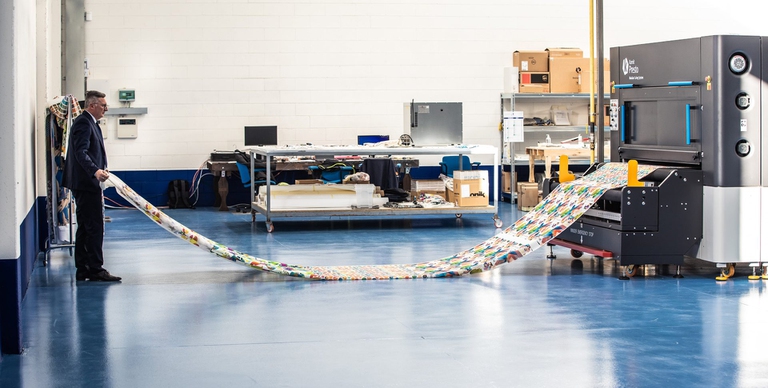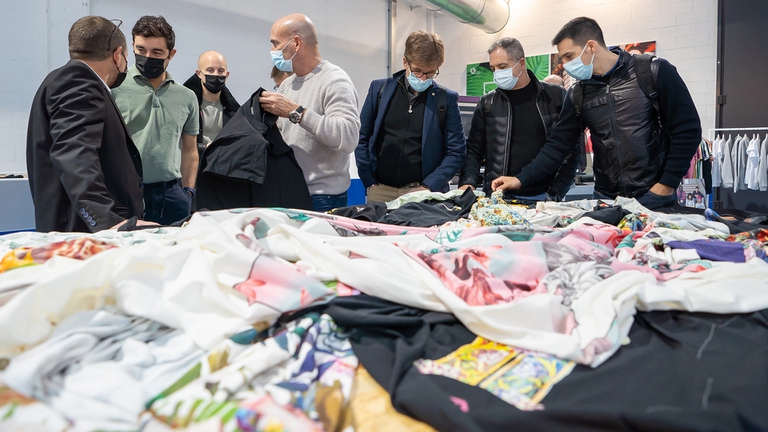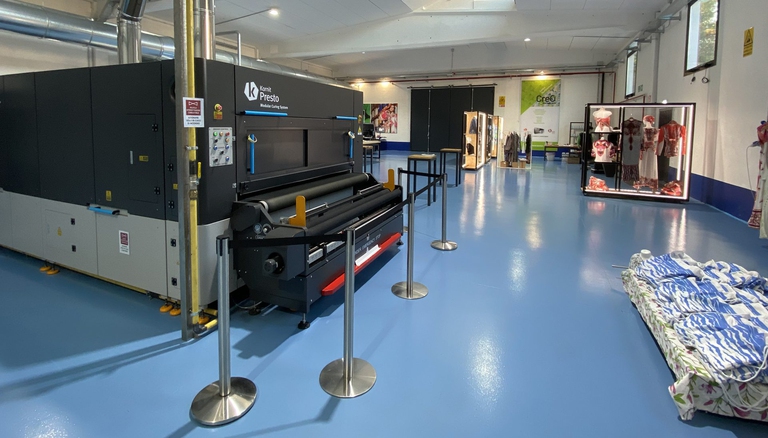https://www.lifegate.it/stampa-tessile-digitale-basso-impatto
- |
It is among the most polluting sectors ever, unsustainable in many senses, environmentally and socially.From the disposal of overproduction to the working conditions in packaging factories, from the pollution caused by the factories to the consumption of water, the fashion it has many ambiguous facets.Especially when we talk about fast fashion, characterized by low quality and low prices because the real costs are passed on to the environment and workers.To reduce the impact and improve the sustainability of the sector, the technology it is a powerful ally and an approach that embraces innovation and research can bring good results.
As in the case of Digital creations, a company in the Como district specialized in digital textile printing which uses, unique in Italy, the innovative technologies of the Israeli multinational Kornit digital:the two companies have combined their respective skills and entered into a partnership to facilitate the transition towards a more sustainable textile sector.
In fact, the new machinery allows us to improve two fundamentally aspects:on the one hand reduce water consumption necessary for printing fabrics and on the other they shorten the supply chain, concentrating different passages in the same place, within the same instrument.

Less water and more efficiency in the printing process
The numbers disclosed by the multinational's research laboratories are staggering:a print water smart, which reduces water consumption to almost zero, would allow for savings five thousand liters of water for every thousand linear metres of fabric compared to standard digital printing processes.If we consider the enormous quantities in the fashion sector it is clear that the environmental benefit is very high.
This savings it also translates into economic terms, as Roberto Lucini, CEO of Digital Creations, was able to experience firsthand.A company that prints, in fact, not only has to bear the cost of the water consumed, but also that of purification of wastewater which normally has an even more significant impact on the production process.But if there is no water, this cost does not have to be borne.

On demand:streamline the textile supply chain globally
The new technology allows different steps of the printing process to be concentrated in a single machine, without wasting energy or consuming resources by sending the fabric to different places to be processed.In this way the logistics are lightened and production is also achieved fewer emissions.
This simplification allows for greater efficiency and profitability also on small quantities and for this reason it opens up potential linked to the production and purchasing model.In this way, following the trends of the sector, we are moving ever more rapidly towards one fashion on demand which is at the same time also economically and productively sustainable.
The supply chain we are experiencing today, in fact, is long and presents many rigidities, especially when it contemplates the delocalization of certain trials in third countries.Thanks to the innovations that are appearing on the market, however, it will be less and less necessary to move production to states where environmental regulations are looser and the cost of labor is lower, as are the guarantees offered to workers.In these nations costs are reduced through economies of scale, which translate into enormous quantities of product poured onto Western markets, through intercontinental transport which in turn affects the carbon footprint of clothes that risk never being worn.In fact, it is estimated that 30 percent of warehouse production remains unsold and ends up landfilled or burned.
Pioneers of new production models
By speeding up the production process, the time between the design of the garment and the moment of purchase is also shortened, and stylists and consumers ideally become closer.It is precisely this new business and supply chain model that allows a Differently enabled, an English startup, by produce tailor-made clothes for people with disabilities at affordable prices that were once unthinkable.According to founder Craig Crawford, everyone must have the right to relate to fashion and express themselves through it, because dressing well makes you feel good.
The potential of fashion in small numbers also convinced Joshua Scacheri to produce the collections of Love hero, his own clothing brand environmentally conscious, right in Italy on the Digital Creations systems.“We want to make sure we have the least impact on our planet, so we want to produce close to home.We are based in London and the best option for us is to produce here in Italy”, explains Scacheri.
CreoCenter for experimentation in the Como district
To facilitate the transition towards this new model, Digital Creations has created CreoCenter, a research center within its spaces in Lurate Caccivio (Co) where young people and startups they can experiment with new processes using new technologies water smart digitally printed, carry out sampling but also small and large productions.To access the center, interested parties can contact the company and present their project.The new generations are the true protagonists of this initiative, because today's young people will be the decision-makers and stylists of the future, and because it is to them that a world will hopefully be left a little cleaner.

Trends, tradition and new generations
The sector today is agile and fast, fashions change rapidly and consumers want to express their personality also through the choice of clothing they wear.Without forgetting, however, that come on young requests are coming for fashion that has environmental and social responsibility, that is fair and supported by a meaningful narrative.With one more targeted production, Therefore, it is possible to unleash creativity while remaining in the wake of sustainability, shorten production times and increase flexibility to better adapt to market needs.And, above all, produce as much as possible only what is necessary, so that someone wears the garments produced and they do not remain on a shelf, unsold and then disposed of with high social and environmental costs.
